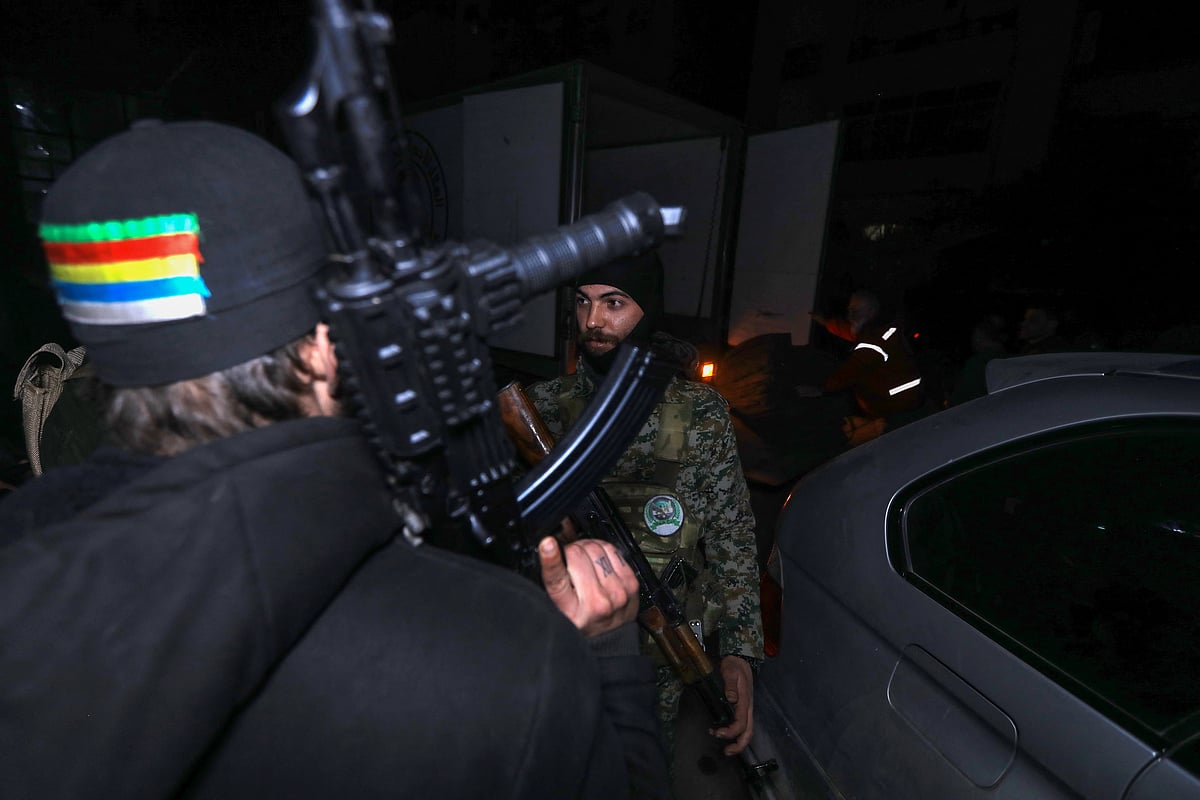Netanyahu tries - and fails - to play the sectarian card in Syria
Netanyahu has used the fall of Assad to make strategic gains along the borders with Syria

Israeli Prime Minister Benyamin Netanyahu is trying to sow sectarian dissent in Syria, less than three months after the collapse of the regime of Bashar Assad, whose downfall effectively brought to an end more than a decade of brutal civil war.
In an audacious move, Netanyahu and Defense Minister Israel Katz instructed the army to prepare to defend Syria’s Druze against an alleged threat by forces loyal to the new government in Damascus. The order was issued days after Netanyahu warned that Israel will not allow the new Syrian army to deploy in the southern provinces of Sweida and Daraa.
After the fall of Assad, the Israeli army breached the 1974 buffer zone in the Golan Heights, occupying its highest peak while taking over several Syrian villages close to the border. The Israeli military also made some incursions deep into Daraa.
Since then, Israel has carried out air strikes against weapon depots and Syrian air bases, ostensibly to prevent Hezbollah and pro-Iran groups from using both.
Netanyahu has used the fall of Assad to make strategic gains along the borders with Syria. He boasted that his army would stay there for some time. But his attempt to use the sectarian card to incite divisions in Syria is his latest ploy to keep the country divided.
He and his extremist coalition partners see an opportunity to push for the partition of Syria while creating local alliances. Netanyahu knows that in the new Middle East that he keeps espousing, Israel should cease to be the exception — as an ethnoreligious state — and become the norm as it seeks to support separatist movements across the neighborhood.
Testing waters
Playing the Druze card is a litmus test to see if the same can be done with other minorities in Syria and Lebanon, such as the Alawites, Kurds, Maronites, and others. For Israel, the new Middle East should look more like a mosaic of small ethno-religious entities with Israel as their principal protector and benefactor.
But Syria’s Druze were quick to reject Netanyahu’s poisoned offer. The incident that sparked Israel’s intervention took place last Friday when a security officer was shot and killed at a checkpoint in the Jaramana, a few kilometers south of Damascus. Jaramana is home to over a million people, but it is home to a large Druze community. The incident led to tensions and clashes between Syrian security forces and local gunmen. There were additional fatalities and injuries.
But local officials were quick to contain the crisis, announcing that they have withdrawn protection of the accused gunmen who killed the security official. They rejected Netanyahu’s offer and said that they supported Syria’s territorial integrity and did not need foreign protection.
Israel will use the sectarian card to sow discord in Syria and Lebanon. After years of internal conflicts and foreign intervention, these two countries struggle to open a new chapter.
Goals and challenges
The new Syrian leadership has made progress in sending a message to all Syrians that the time for reconciliation and nation-building has begun. Last week, a national dialogue conference kicked off in Damascus, setting the pace for the country’s political transition, which should lead to the adoption of a new constitution and the holding of legislative and presidential elections.
But the road to reach these goals is long and fraught with challenges. Foreign troops continue to occupy swaths of Syria. Daesh remains a threat to the region as a whole. The new leadership must make gestures to bring in the Kurds into the political process. Relations between Syria and Lebanon must rest on new and firm ground.
And then there is Israel's occupation of Syrian territory. Israel cannot dictate the kind of regime it wants to see in Damascus. That is for the Syrian people to decide. It cannot put conditions on the Syrian people that suit its own goals and interests.
The role of Arab states
That is why the Arab states must stand firm against Israeli attempts to support and nourish secessionist groups in Syria. The partition of Syria is a cherished goal of Israel, which wants to force itself as a regional power at the expense of other states.
But the only guarantee against Israeli conspiracies is the ability of the new Syrian leadership to bring all Syrians together. Syria’s ethnic and religious diversity are points of strength, not weakness. Both have created an affluent and tolerant society and culture. Israel must not be allowed to use them to divide and create sedition.
Syrian Druze are proud Arabs who have made great sacrifices in the defense of Arab causes and in protecting Syria’s territorial integrity. Netanyahu’s ploy has failed, but that does not mean that Israel will not try to divide the Syrian people again in the future.
Osama Al Sharif is a journalist and political commentator based in Amman.
Sign up for the Daily Briefing
Get the latest news and updates straight to your inbox
Network Links
GN StoreDownload our app
© Al Nisr Publishing LLC 2026. All rights reserved.